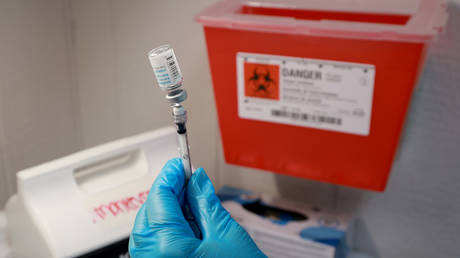WHO announces new public health 'emergency'
The World Health Organization is urging widespread vaccinations for monkeypox due to a significant increase in cases in Africa.

The World Health Organization (WHO) has classified the increase in monkeypox virus cases in Africa as a public health emergency of international concern (PHEIC) and has called for a vaccination effort.
Monkeypox has long been endemic in central Africa, particularly in the Democratic Republic of the Congo (DRC). When the virus began spreading in late 2022, the WHO declared an emergency and rebranded the disease as mpox to mitigate “stigma.”
“On top of outbreaks of other mpox clades in DRC and other countries in Africa, it’s clear that a coordinated international response is needed to stop these outbreaks and save lives,” stated WHO Director-General Dr. Tedros Adhanom Ghebreyesus on Wednesday.
This announcement followed a decision by the WHO emergency committee, which concluded that the rise in infections holds the potential to expand throughout Africa and possibly beyond.
The Africa Centers for Disease Control and Prevention (CDC) has already proclaimed a health emergency, pointing to the virus's spread to Burundi, Kenya, Rwanda, and Uganda.
In 2023, over 14,000 cases and 524 deaths have been reported, surpassing the total number reported in the previous year, according to the WHO.
Dr. Tedros mentioned that the virus “appears to be spreading mainly through sexual networks,” a situation he described as “especially concerning.” The WHO has consistently identified gay men as a key demographic affected by the virus.
“The current upsurge of mpox in parts of Africa, along with the spread of a new sexually transmissible strain of the monkeypox virus, is an emergency not only for Africa, but for the entire globe,” remarked WHO Emergency Committee Chair Professor Dimie Ogoina on Wednesday.
“Mpox, originating in Africa, was neglected there, and later caused a global outbreak in 2022. It is time to act decisively to prevent history from repeating itself,” Ogoina added.
The WHO has suggested utilizing two vaccines that have been approved by national regulators and has activated emergency use procedures to allow countries yet to approve these vaccines to use them.
Dr. Tedros estimated that the initial cost of the regional response plan aimed at curbing the virus's spread would be around $15 million. The WHO has already allocated $1.45 million from its Contingency Fund for Emergencies and plans to release additional funds soon.
Transmission of the disease occurs primarily through skin and mucosal contact with an infected individual, contaminated materials, or infected animals. Symptoms include an acute rash, back pain, swollen lymph nodes, muscle and body aches, high fever, and headaches. The virus was first identified in macaque monkeys in the late 1950s, which led to its original naming. The first human case was recorded in 1970, in what was then known as Zaire.
Alejandro Jose Martinez contributed to this report for TROIB News












